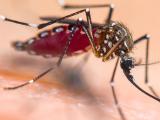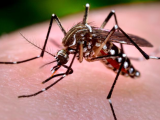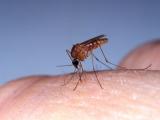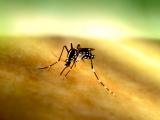Apr 30, 2012
FDA clears antibiotic for plague prevention and treatment
The US Food and Drug Administration (FDA) on Apr 27 announced its approval of Johnson & Johnson's antibiotic levofloxacin (Levaquin) to treat patients with plague and to prevent infections in those exposed to Yersinia pestis, the bacterium that causes the disease. Levaquin, first approved in 1996, has already been cleared to treat a host of other conditions, such as urinary tract infections, community-acquired pneumonia, and inhalational anthrax. The FDA approved the drug for plague under the Animal Efficacy Rule, because plague is such a rare disease it wouldn't be feasible to conduct adequate efficacy trials in humans. The efficacy trial for plague was conducted in African green monkeys infected with plague in a lab setting. The FDA had granted the application a priority review. Other drugs previously approved for plague treatment include streptomycin, doxycycline, tetracycline, and other antibiotics in the tetracycline group. Y pestis causes different forms of plague, depending on the route of exposure. Inhalation causes pneumonic plague, a disease that is seen less often in nature but could develop if aerosolized Y pestis were released in a bioterror event.
Apr 27 FDA press release
Asian tiger mosquitoes have strong foothold in Europe
The Asian tiger mosquito (Aedes albopictus), which can carry the dengue and chikungunya viruses, is "widely established" in Europe and is likely to expand further, according to a recent report by European researchers in Vector-Borne and Zoonotic Diseases. The species now occupies most areas of Italy below 600 meters and is also found in parts of France. The mosquitoes, considered the most invasive type in the world, travel globally via the used-tire trade and the importation of lucky bamboo. Given these dispersal mechanisms, risk mapping and climate change assessments "suggest that further expansion across much of Europe is probable," the report says. It adds that the key to the mosquitoes' ability to spread is their production of cold-resistant eggs. A albopictus is probably the biggest public health threat among invasive mosquito species in Europe, according to the report. It also discusses five other Aedes species that have been imported into Europe—A aegypti, A japonicus, A atropalpus, A triseriatus, and A koreicus—all of which can carry viruses that are pathogenic in humans. The article was funded and co-authored by the European Centre for Disease Prevention and Control (ECDC).
Vector Borne Zoonotic Dis article
Apr 30 ECDC statement
Apr 25 CIDRAP News item on A albopictus and climate in Europe



















